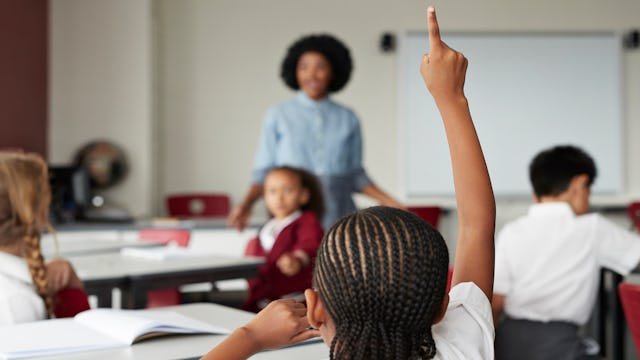Black Students Who Have Black Teachers Are More Likely To Go To College

Black educators serve as role models for black students — because representation matters
A recent study finds that black students who have just one black teacher show an increased desire to go to college and a greater likelihood of enrolling in college altogether. Because representation matters. Big time.
The achievement gap between white students and students of color has barely narrowed during the last 50 years, despite any attempts at progress or academic acknowledgment of discrepancies between the two. That is, at best, a grim result of a half-century of work.
The study in question, conducted by the National Bureau of Economic Research, shows that students who have a black teacher while in school are also less likely to drop out and more likely to take the steps to make a college education a reality.
Specifically, the results show that a black student in elementary school is 13 percent more likely to enroll in college than their peers who did not have any black teachers. Students who had two black teachers are 32 percent more likely to attend college.
You simply cannot ignore findings this significant.
“Over the past few years we have a lot of studies that have looked at the short-term outcome,” Constance Lindsay, a researcher at the Urban Institute and one of the report’s authors, tells NPR. “This is the first study of its kind to show that there are long-run effects.”
The research states that one of the reasons why this has such a profound effect on students as young as elementary school-age is simple: black teachers serve as role models for black students. Their presence in the classroom is a literal, successful example of what having an education can do — it gives these children a goal to aspire to.
Many of the students who were studied for the research enrolled in community colleges or two-year programs, which may not prove to be as lucrative as a four-year degree (though it’s important to note a four-year degree is absolutely not a guarantee to a lucrative life — or so I’ve heard). But enrolling in any secondary education at all is incredibly important and should be treated as such.
In order to continue this pattern of progression — and to close that achievement gap entirely — we need more black educators. Hopefully, these findings prove the U.S. is on the path to achieving exactly that.